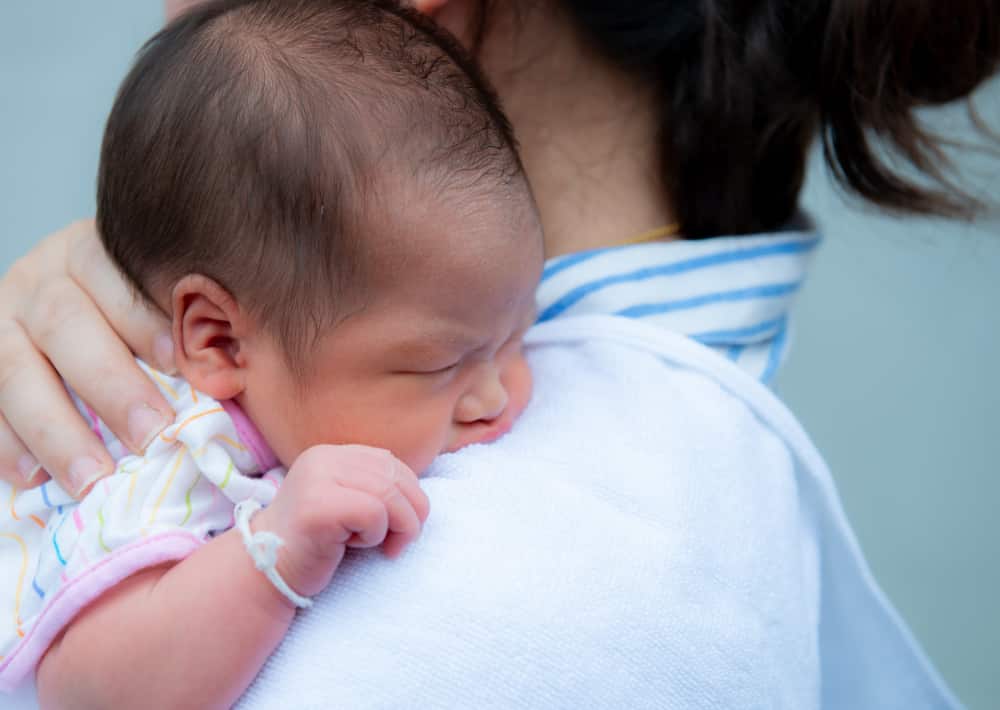When you start to learn about breastfeeding your children and how long you should continue to do so, you will likely get a lot of answers. Fellow parents will tell you one thing, online resources will tell you another, and it can be confusing. In this article, we lay out the facts about breastfeeding and tell you what the experts recommend so you can make the best decision for you, your toddler, and your family. Let’s talk about when to stop breastfeeding your toddler.
Key Points
- Babies should be exclusively breastfed for the first six months of their life.
- You can technically stop breastfeeding after six months, but many mothers choose to continue breastfeeding until two years.
- You can breastfeed your child after two years, but as your child grows this will get more difficult. Eventually, you will want to move them entirely to solid foods.
The Answer That Most Experts Will Provide
It is important to understand that every child is different, and your situation may differ from the other mothers in the world. However, if you want a basic but scientific answer, then you can follow the advice of the CDC and the World Health Organization. These organizations state that babies should be exclusively breastfed for the first six months of their life.
However, while they should start to eat solid foods after that point, mothers can continue to supplement their child’s diet with breast milk for several more years depending on the individual and miscellaneous factors that we will discuss below.
The Benefits of Breastfeeding

The act of breastfeeding is great for bonding and provides great benefits for mom and baby.
©ravipat/Shutterstock.com
If you take the average of those answers and talk to most pediatricians, you can safely assume that you can breastfeed your child for the first year. Breastfeeding is important because there are many health benefits for you and your child, and the act can also protect your baby against illness and disease. The longer you breastfeed, the greater the benefits will be, so consider going longer if you are comfortable doing so.
Mothers that are on the fence about breastfeeding should consider these benefits for you and your child, including:
Proper nutrition
Your baby needs a number of nutrients, vitamins, lipids, and carbohydrates to grow properly, and all of these essential elements are found in a mother’s breast milk. So, when you breastfeed, you send that good stuff directly to your child.
Protection Against Many Illnesses
Extensive research has been completed about the benefits of breastmilk, and it has been found that breastfeeding can help to prevent an almost endless list of ailments, including asthma, type 1 diabetes, obesity, and sudden infant death syndrome, among others.
Breast Milk has Antibodies
In addition to the helpful nutrients, a mother’s breast milk is also loaded with antibodies, which are what help to strengthen a child’s immune system. This is essential to protect them from sickness going forward.
Mothers Benefit as Well
Extensive research has also been conducted about the benefits of breastfeeding for mothers. Among them is the fact that breastfeeding can help to eliminate the chance of major health issues, including ovarian cancer, high blood pressure, and type 2 diabetes, among others.
Other benefits include:
- The process helps mothers to burn calories.
- You can save money that you would have spent on store-bought milk.
- The process helps to lower the chances of experiencing postpartum depression since your pregnancy hormones will decrease at a more steady pace.
Why Should You Stop Breastfeeding After 2 Years?
Since breastfeeding can be so incredibly beneficial for children, many mothers may be wondering why experts say that mothers shouldn’t exclusively breastfeed their babies after six months.
The primary reason is that after six months, your baby starts to require more of certain nutrients, like zinc, iron, and vitamins D and B, than they currently get from your breast milk. While it is recommended that you keep breastfeeding, you should supplement that with solid foods that provide the elements that your baby needs to grow and thrive.
At two years, your child will still benefit from breastmilk. However, many experts label breastfeeding after two years as “extended breastfeeding.” There is nothing wrong with continuing after this time, it will just become a bit more difficult as your child will start to become more mobile and less likely to sit there for feedings. Plus, since you will also want to feed your kid solid foods, it can be a lot to juggle at once.
It's important to note that breastfeeding can affect your fertility. If you're planning on having another baby, then it makes sense to stop breastfeeding your child once they reach six months. You'll want to give your fertility ample time to rebound before trying to get pregnant again. If you have concerns about how breastfeeding can and will affect your fertility, be sure to consult an OBGYN.
Keep in mind that you can technically stop breastfeeding completely after six months, especially if you are experiencing any one of the following:
- Sore or painful breasts.
- You are not producing enough breast milk.
- You’re expecting to become pregnant again.
- You need medicine that could harm your baby.
- You need to go back to work or are planning an extended trip away from home.
- Your child is becoming fussy over breastfeeding or is completely rejecting it.
Breastfeeding Laws
If the reason you are choosing to stop breastfeeding is because of a return to work or your need to travel, then it is important to understand that there are laws that protect your ability to breastfeed your child.
Among them is the fact that all 50 states, Puerto Rico, Virgin Islands, and District of Columbia have laws on the books that say that you can breastfeed in any public location or private area.
Also, the Patient Protection and Affordable Care Act protects mothers by requiring all employers to allow breastfeeding at any time up to one year after the child is born. That means that they need to give you a reasonable break time to feed your child. While many people are working remotely these days, if you work in a physical office outside of the home, then the company must also provide a private space for this particular need.
Finally, while there is more red tape around breastfeeding on a plane, if you travel by air, then the Transportation Security Administration (TSA) says it is legal to bring up to 3.4 ounces of breastmilk inside of your carry-on luggage plus the ice pack necessary to keep it cold. That way, you can feed your baby if they get hungry during the flight.
Breastfeeding Past 2 Years
If you are like many mothers, then you might stop breastfeeding your toddler at or before two years of age. However, many women continue to breastfeed their kids until they are four years old and beyond.
There is nothing wrong with breastfeeding your child later into their life, but most women stop at that point mostly because of the inconvenience and social stigma that breastfeeding an older child can bring. It also may be inconvenient to breastfeed an older child, since they'll likely begin attending a day school or preschool once they're three or four. With that said, there are several reasons why it can be beneficial to continue the routine.
For example, as long as you continue breastfeeding, both you and your child will continue to receive the benefits of a lower risk of the diseases mentioned previously, and your toddler will continue to get the antibodies that will help them to grow big and strong.
There is also an emotional aspect.
Some studies show that mothers that breastfeed are less likely to experience depression and they have less stress and anxiety than those that stop breastfeeding. A lot of that is due to the emotional connection that you and your child share and the feeling that you are still needed and appreciated by your baby. When your toddler is used to breastfeeding, then the act also makes it easier to soothe them when they are upset or ready to take a nap.
Finally, there are the convenience and cost-saving factors associated with having healthy milk ready for your child without needing to stop at the store.
Of course, eventually you'll have to wean your child off of breastfeeding. Regardless of when you choose to do so, we recommend having them completely weaned by the time they start school.
How To Stop Breastfeeding Your Toddler
When you do finally decide to stop breastfeeding, you will need to stop gradually so the discontinuation is not too jarring for you or your toddler.
Ideally, you should plan ahead and choose an upcoming month when you want to stop breastfeeding. Then, allow yourself that full month to quit, so you allow time for potential setbacks and obstacles.
During that month, start adjusting your routine bit by bit. So, you could start by omitting a single breastfeeding session per week, then limit the times that you breastfeed each day, and so on until you aren’t breastfeeding at all. Not only will this process make it easier for your toddler to adjust, but the less you feed, the less milk you will produce, so it will be more comfortable for you as well.
You can start to replace that breastfeeding time with quality one-on-one moments with your child, so you are still retaining that special connection. Use that time to read them a book or sing a lullaby. Even if you stop gradually, you can still expect some resistance from your child, but if you start replacing that breastmilk with solid foods and they get the nutrients that they need, they will start to get used to this new normal.
If you experience any engorgement in your breasts during this time, then you can soothe the discomfort with acetaminophen or ice packs. You may also experience some sadness during this time, which is normal. If you do, then talk to your family for comfort or ask other breastfeeding mothers who can relate and offer helpful advice.
Conclusion
As you can see, there are many considerations and emotions involved when deciding to stop breastfeeding your toddler. Remember that this is your decision to make, and you can make it on your own time, so do what is best for you and your child. If you have any questions, then please speak to your pediatrician or medical doctor. We wish you luck with this new chapter of your life.
The image featured at the top of this post is ©paulaphoto/Shutterstock.com
